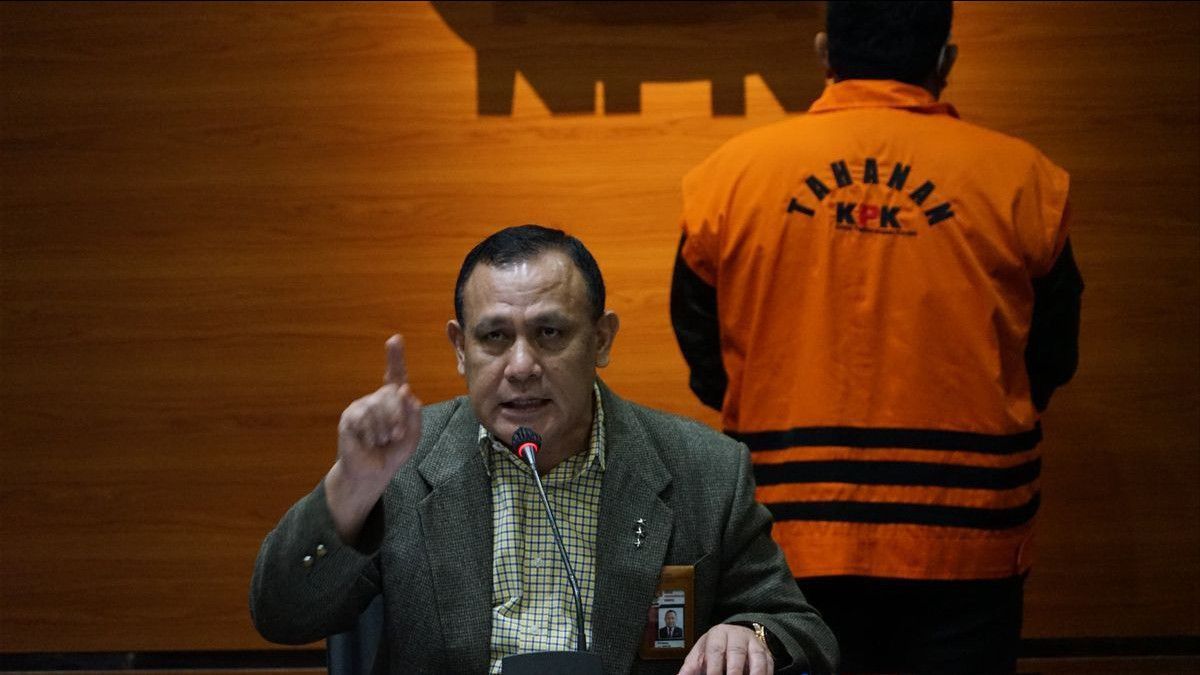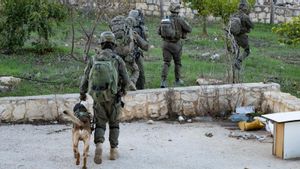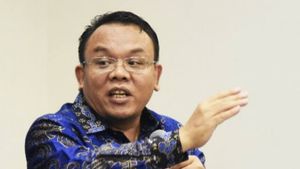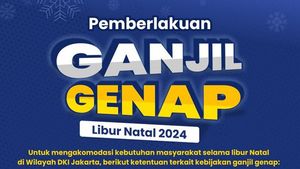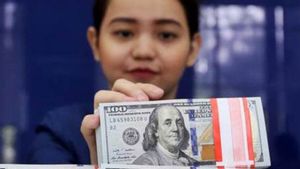JAKARTA - The Corruption Eradication Commission (KPK) does not approve of the paid COVID-19 vaccine or Gotong Royong because there are a number of potential frauds in its implementation.
This was conveyed by KPK Chairman Firli Bahuri during a coordination meeting of a number of ministerial/institutional leaders on Monday, July 12.
The meeting was attended by Coordinating Minister for Maritime Affairs and Investment Luhut Binsar Panjaitan, Minister of Health Budi Gunadi Sadikin, and Minister of State-Owned Enterprises (BUMN), Erick Thohir.
In addition, the Attorney General ST Burhanuddin to the Head of the Financial and Development Supervisory Agency (BPKP) Muhammad Yusuf Atjeh was also present.
"KPK does not support the GR Vaccine (Gotong Royong) pattern through Kimia Farma because its effectiveness is low while its management is risky," Firli said in a written statement, Wednesday, July 14.
At the meeting, the former Deputy for Enforcement of the KPK also conveyed a number of considerations, background, legal basis, to the potential for fraud, starting from planning, ratification, implementation, and program evaluation.
"I also suggest strategic steps to address the potential for fraud if the independent vaccine is paid to the public as well as subsequent vaccinations. I certainly don't have the capacity to make decisions but I want there to be no corruption," he said.
At least, there are six records related to the follow-up given by the anti-corruption commission. First, the Corruption Eradication Commission understands the current issue of vaccination implementation and at the same time supports efforts to accelerate vaccination.
Second, the sale of COVID-19 vaccines to individuals through Kimia Farma has a high risk from a medical perspective as well as vaccine control, low effectiveness, and limited reach. Not to mention the possibility of the emergence of resellers.
Third, the KPK also mentioned that the expansion of paid vaccines or Gotong Royong to individuals should not use bilateral grant vaccines or the COVAX scheme. Not only that, the anti-corruption commission asked for transparency of data on the allocation and use of the Mutual Cooperation Vaccine.
Furthermore, according to Presidential Regulation (Perpres) Number 99 of 2020, the Minister of Health is ordered to determine the amount, type, price of vaccines, and the mechanism of vaccination.
Fifth, it is necessary to build a system for planning, implementing, monitoring and monitoring the implementation of the Gotong Royong vaccine in a transparent, accountable manner, and avoiding fraudulent practices. "Data is the key. For this reason, the Ministry of Health must prepare data on prospective GR Vaccine participants before vaccination," he said.
As previously reported, the Ministry of Health has issued amending rules regarding the implementation of the Mutual Cooperation Vaccine. In Minister of Health Regulation No.19/2021, individuals or individuals can access COVID-19 vaccinations.
Currently, the vaccination program for these individuals can only be carried out at Kimia Farma's health care facilities in eight points in Java and Bali.
The purchase price of the vaccine in the Gotong Royong scheme is Rp. 321,660 per dose. Meanwhile, the maximum rate for vaccination services is Rp. 117,910 per dose.
However, the program caused a polemic so that it was temporarily postponed for socialization to the public and regulating the flow of registration of prospective vaccine recipients.
The English, Chinese, Japanese, Arabic, and French versions are automatically generated by the AI. So there may still be inaccuracies in translating, please always see Indonesian as our main language. (system supported by DigitalSiber.id)
